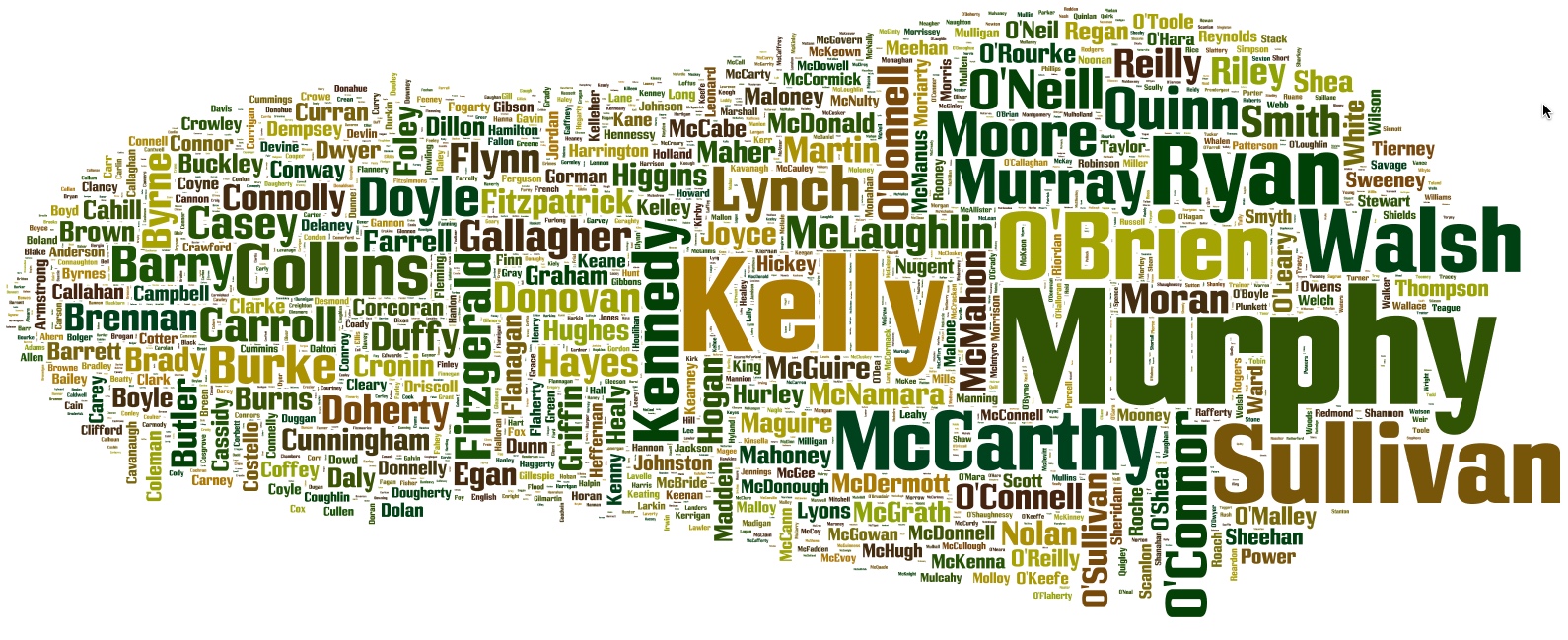
Only after it’s exposed to air can it start to heal.”īecause the home genetics industry is still relatively new - the first tests didn’t become commercially available until 2007 - there isn’t research in the long-term psychological effects of getting bad DNA news, says science writer Carl Zimmer, author of the newly released book “She Has Her Mother’s Laugh: The Powers, Perversions, and Potential of Heredity.” But, he adds, “There’s evidence that some people may end up grappling with test results for a long time, especially if they didn’t prepare themselves for the possibility of a surprise.”
My dna matches have different surname skin#
It’s like having an infection that’s deep under your skin that keeps festering and it’s painful and it’s getting worse and worse.

“People don’t get that it really is a significant trauma,” says St Clair, a 56-year-old Texan who discovered through that her biological father wasn’t the same person who raised her. (You can’t join the group unless you’ve actually gotten the DNA rug pulled out from under you. The NPE Facebook community, launched by Catherine St Clair last summer, is already up to 2,364 members (at press time) despite a rigorous screening process. Call it PTDD: post-traumatic DNA-test-results disorder.

This burgeoning genealogy-on-demand marketplace - which some projections claim could be worth an estimated $60 billion in sales by 2020 - has spawned its own unique syndrome. It’s only when you get to the fine print that the possibility of a genetic bombshell becomes more apparent: “You may discover things about yourself that trouble you and that you may not have the ability to control or change,” warns 23andMe’s terms-of-service statement. For just $100 - the average cost of a direct-to-consumer genetic genealogy test - you can “Learn a more complete story of you,” as AncestryDNA’s website declares, or “Find new relatives you never knew existed,” promises 23andMe. What these companies are offering can sound tantalizing to anybody with even the mildest interest in genealogy. “All over the country, DNA is blowing up family secrets.”īusiness has never been better for what’s often called “recreational genetics.” The number of people who’ve had their DNA analyzed - which involves mailing your saliva or cheek swab to a genetic testing company like 23andMe, AncestryDNA, Family Tree DNA, or My Heritage - doubled in 2017, with more than 12 million customers, or roughly 1 in 25 American adults paying to have their genes decoded. “I never realized that there are so many others,” Ketchum says. She joined a secret Facebook community called DNA NPE Friends-NPE is short for “Not Parent Expected”- and found not just the support she needed but a reminder that she’s far from alone. “I still wonder sometimes, would my life have been different if I’d known this earlier? My real father, my actual grandparents, they all spoke fluent Spanish. “It kind of consumed me,” says the mother of eight. She finally discovered the identity of her biological father, Bill Chavez of New Mexico, who had died when Ketchum was just 17. “Every Hispanic person I saw on the street, I thought, ‘Are you my cousin?’ ”Īs an only child whose parents were both deceased, she had nobody to turn to for answers. “I looked in the mirror, and I didn’t know who I was anymore,” she says. I’m Hispanic! All these years I thought I was German on my dad’s side, but all of a sudden it was dawning on me that my dad wasn’t my real dad and I had an entirely different ethnicity.”Īt 51, half a century into her life, Ketchum’s familial and cultural identity had changed in an instant. “But then I kept re-checking it, and I realized, oh my God, does this mean I’m. “At first I didn’t believe it,” she says. Even more unsettling, at least two-thirds of Ketchum’s matches had Hispanic surnames. When she went on the AncestryDNA site to view her DNA matches, there were no connections between her and her father. “I thought it’d be fun to learn a little about my genetic ethnicity, to trace how all the pieces came together.” But she ended up getting far more than she bargained for. “My dad was German, and my mother was Scottish-English,” she says. She had no family secrets she was trying to uncover, no genealogy mysteries that needed answers. When Linda Ketchum of Glendale, Calif., asked her husband for an AncestryDNA kit for Christmas, it was just a lark. Learn more about your dog for National Pet Day with this breed ID test JonBenet Ramsey’s dad bashes Colorado cops for refusing to use 'modern technology' GOP call for Albany Dems to let police use 'familial DNA' on cold cases


 0 kommentar(er)
0 kommentar(er)
